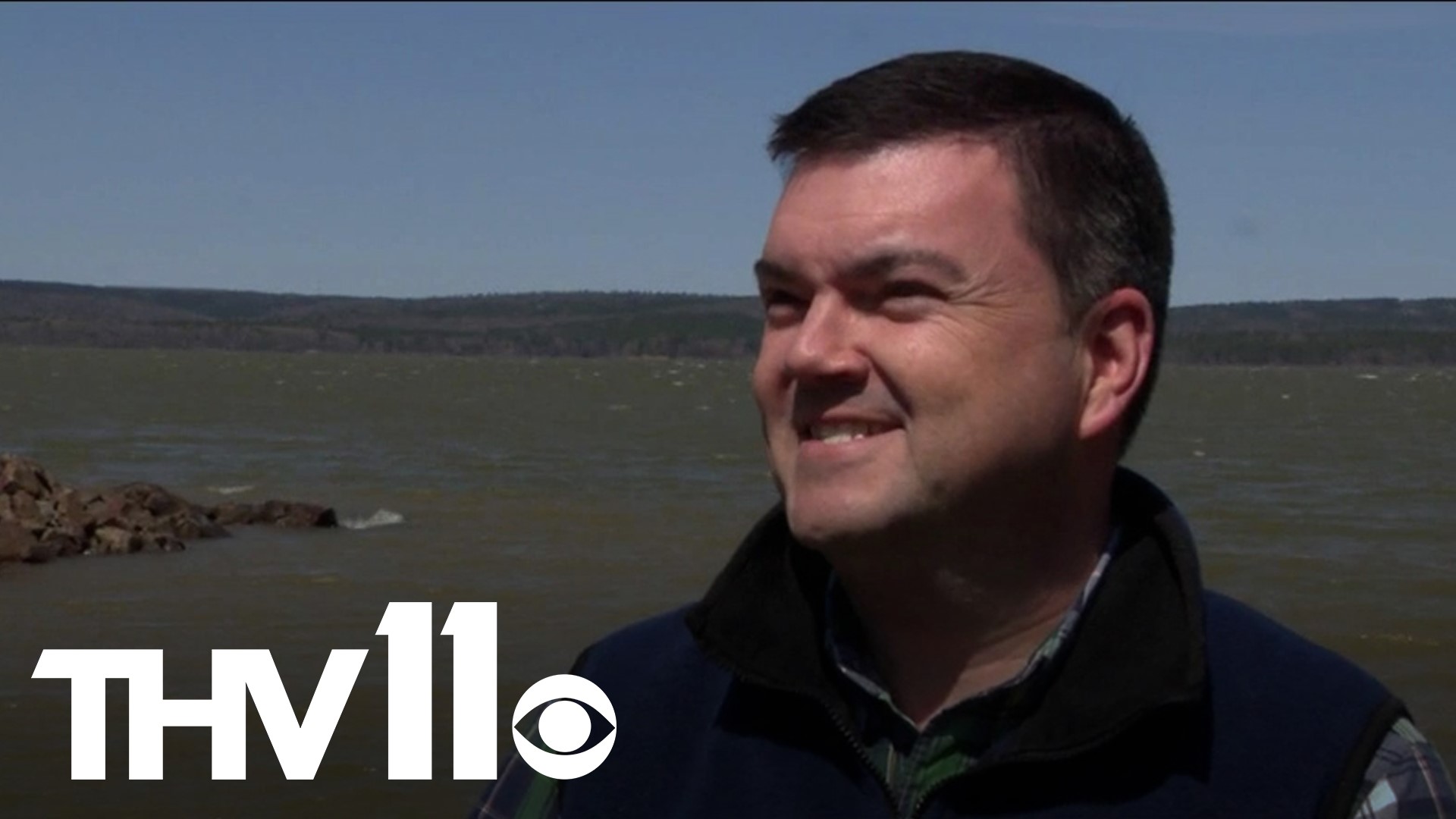ROLAND, Ark. — On a windy Friday at Lake Maumelle, Doug Shackelford with Central Arkansas Water was feeling hopeful.
"It's absolutely crucial that we do everything we can to ensure its health and safety for decades," Shackelford said.
Lying under the lake's waves is a growing problem— a plant, and it's one they don't want.
"Hydrilla is an invasive species that has made its way into the lake," Shackelford said.
Hydrilla has long vines that grow from the bottom of the lake, forming thick mats on the surface. Shackelford said the growth is annoying on its own, but once developed can be even worse.
"The real issue with Hydrilla as it relates to a drinking water reservoir is that it can house cyanobacteria," Shackelford said.
Lake Maumelle is the largest reservoir for drinking water in Central Arkansas. Cyanobacteria, also known as blue-green algae, is toxic.
"Getting ahead of this and taking care of the hydrilla issue now that it's presented itself is really key for what we're trying to do over the next 10, 20, 50, 100 years for drinking water in Central Arkansas," Shackelford said.
To get rid of this, Shackelford said they have a simple solution. On Thursday, Central Arkansas Water approved $2.5 million for herbicide pellets to drop near the roots of the plants, killing them at the source.
"It doesn't affect fish," Shackelford said. "It doesn't affect wildlife. It just targets the plant."
It may sound scary, having herbicide in the lake that is also our drinking water reservoir, but Shackelford said it's safe.
"The water from the lake comes through the normal treatment process as always, to ensure that the water is safe to drink at your home," Shackelford said.
It's a big step to address something they haven't seen yet, but Shackelford says prevention is key.
"We do not have cyanobacteria in the lake that we have seen," Shackelford said. "There's no risk. This is us really taking those proactive steps to ensure that the reservoir is healthy for years."
According to Shackelford, Central Arkansas Water plans to drop the pellets when the lake warms up, likely later in the Spring.

